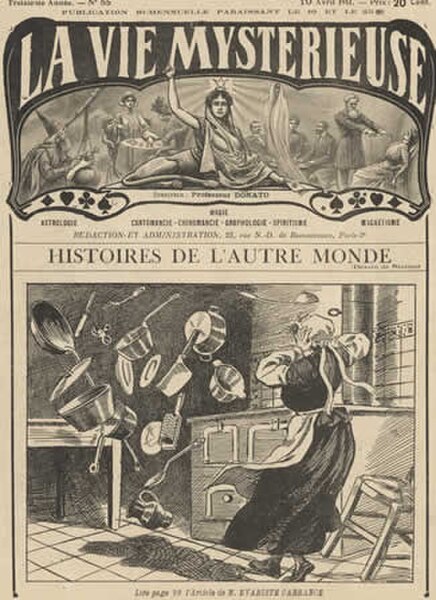Alexandr Nikolayevich Aksakov was a Russian writer, translator, journalist, editor, state official and psychic researcher, who is credited with having coined the term "telekinesis". While living in Germany with his wife and publishing his writings there, he began to spell his name as Alexander Aksakof to accommodate the German spelling style, and this is the name by which he is most known outside of Russia.
A signed portrait of Alexandr Aksakov. 1906
Aksakov (right) monitors for fraud while medium Eusapia Palladino "levitates" a table, Milan, 1892.
Telekinesis is a hypothetical psychic ability allowing an individual to influence a physical system without physical interaction. Experiments to prove the existence of telekinesis have historically been criticized for lack of proper controls and repeatability. There is no reliable evidence that telekinesis is a real phenomenon, and the topic is generally regarded as pseudoscience.
Artist conception of spontaneous telekinesis from 1810 French magazine La Vie Mysterieuse
An advertising poster depicting magician Harry Kellar performing the "Levitation of Princess Karnac" illusion, 1894, U.S. Library of Congress
Eusapia Palladino "levitates" a table while researcher Alexander Aksakof (right) monitors for fraud, Milan, 1892.
Spirit photography hoaxer Édouard Isidore Buguet (1840–1901) of France fakes telekinesis in this 1875 cabinet card photograph titled Fluidic Effect.





